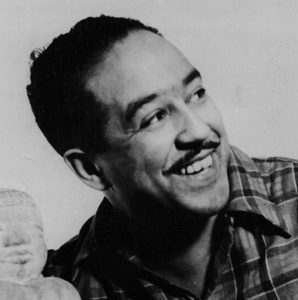Black Gay Legends
 Samuel R. Delany, in full Samuel Ray Delany, Jr., (born April 1, 1942, New York, New York, U.S.), American science-fiction novelist and critic whose highly imaginative works address sexual, racial, and social issues, heroic quests, and the nature of language.
Samuel R. Delany, in full Samuel Ray Delany, Jr., (born April 1, 1942, New York, New York, U.S.), American science-fiction novelist and critic whose highly imaginative works address sexual, racial, and social issues, heroic quests, and the nature of language.
Delany attended City College of New York (now City University of New York) in the early 1960s. His first novel, The Jewels of Aptor, was published in 1962. Babel-17 (1966), the story of an artist-outsider, explores the nature of language and its ability to give structure to experience. Delany won the science-fiction Nebula Award for this book, which established his reputation, and for The Einstein Intersection (1967), which features a similar protagonist and addresses issues of cultural development and sexual identity, a theme more fully developed in the author’s later works.
 Alain Leroy Locke, a leading black intellectual during the early twentieth century and an important supporter of the Harlem Renaissance, was born in Philadelphia, Pennsylvania on September 13, 1886 to Pliny Ishmael Locke and Mary Hawkins Locke. His parents were middle class educated professionals. A gifted and talented student, Locke attended Harvard University in 1904 where he studied under renowned scholars including Josiah Royce, George Santana, and William James.
Alain Leroy Locke, a leading black intellectual during the early twentieth century and an important supporter of the Harlem Renaissance, was born in Philadelphia, Pennsylvania on September 13, 1886 to Pliny Ishmael Locke and Mary Hawkins Locke. His parents were middle class educated professionals. A gifted and talented student, Locke attended Harvard University in 1904 where he studied under renowned scholars including Josiah Royce, George Santana, and William James.
Locke excelled at his studies and became the first African American to be awarded a Rhodes Scholarship. After earning his undergraduate degree in 1907, Locke attended Oxford University where he obtained another B.A degree in 1910. The following year he attended the University of Berlin in Germany.
In 1912 Locke returned to the United States where he became an assistant professor of philosophy at Howard University in Washington, D.C., beginning an academic career that would span four decades. He also joined the newly organized Phi Beta Sigma Fraternity. In 1916 Locke interrupted his teaching career at Howard to return to Harvard University where he earned a Ph.D. in Philosophy. When Locke rejoined the faculty at Howard he quickly rose in rank and in 1921 became the chair of the Philosophy department. He remained in this position until his retirement in 1953.
Locke was known as an engaging, talented, accessible and admired professor by both his students and his colleagues. He was a pioneer in interdisciplinary scholarship as his work transcended standard academic disciplines in the humanities and social sciences. Locke also embraced progressive, avant-garde, and, some would argue, unorthodox teaching methods while at Howard which were sometimes viewed with suspicion by more traditionally oriented colleagues and administrators at his institution.

Portait of African American poet Langston Hughes with a statue, 1955. (Photo by Afro American Newspapers/Gado/Getty Images)
(James Mercer) Langston Hughes was born February 1, 1902, in Joplin, Missouri. His parents divorced when he was a young child, and his father moved to Mexico. He was raised by his grandmother until he was thirteen, when he moved to Lincoln, Illinois, to live with his mother and her husband, before the family eventually settled in Cleveland, Ohio. It was in Lincoln that Hughes began writing poetry. After graduating from high school, he spent a year in Mexico followed by a year at Columbia University in New York City. During this time, he held odd jobs such as assistant cook, launderer, and busboy. He also travelled to Africa and Europe working as a seaman. In November 1924, he moved to Washington, D. C. Hughes’s first book of poetry, The Weary Blues, (Knopf, 1926) was published by Alfred A. Knopf in 1926. He finished his college education at Lincoln University in Pennsylvania three years later. In 1930 his first novel, Not Without Laughter, (Knopf, 1930) won the Harmon gold medal for literature.
In addition to leaving us a large body of poetic work, Hughes wrote eleven plays and countless works of prose, including the well-known “Simple” books: Simple Speaks His Mind, (Simon & Schuster, 1950); Simple Stakes a Claim, (Rinehart, 1957); Simple Takes a Wife, (Simon & Schuster, 1953); and Simple’s Uncle Sam (Hill and Wang, 1965). He edited the anthologies The Poetry of the Negro and The Book of Negro Folklore, wrote an acclaimed autobiography, The Big Sea (Knopf, 1940), and cowrote the play Mule Bone (HarperCollins, 1991) with Zora Neale Hurston.
Langston Hughes died of complications from prostate cancer on May 22, 1967, in New York City. In his memory, his residence at 20 East 127th Street in Harlem has been given landmark status by the New York City Preservation Commission, and East 127th Street has been renamed “Langston Hughes Place.”
